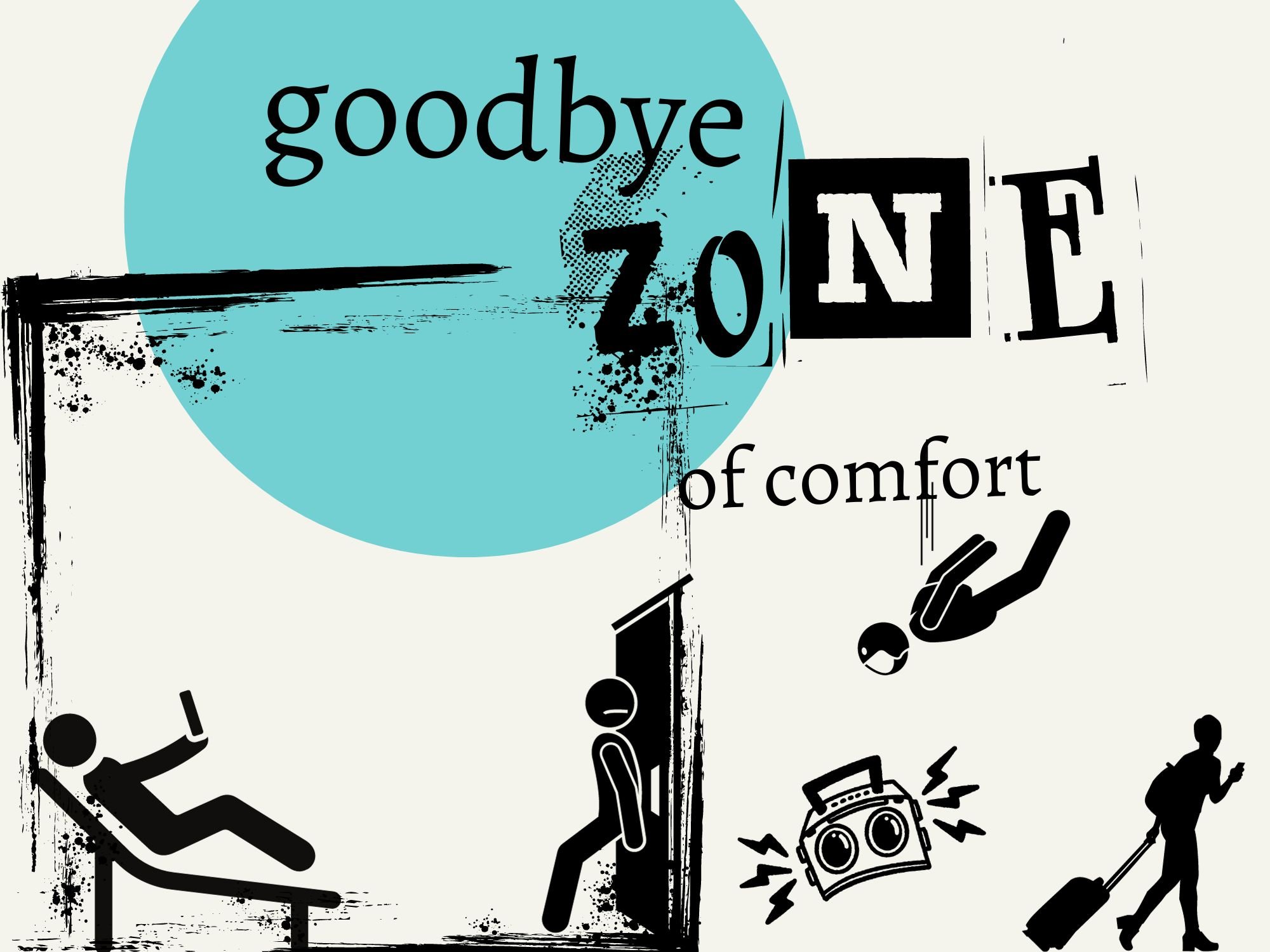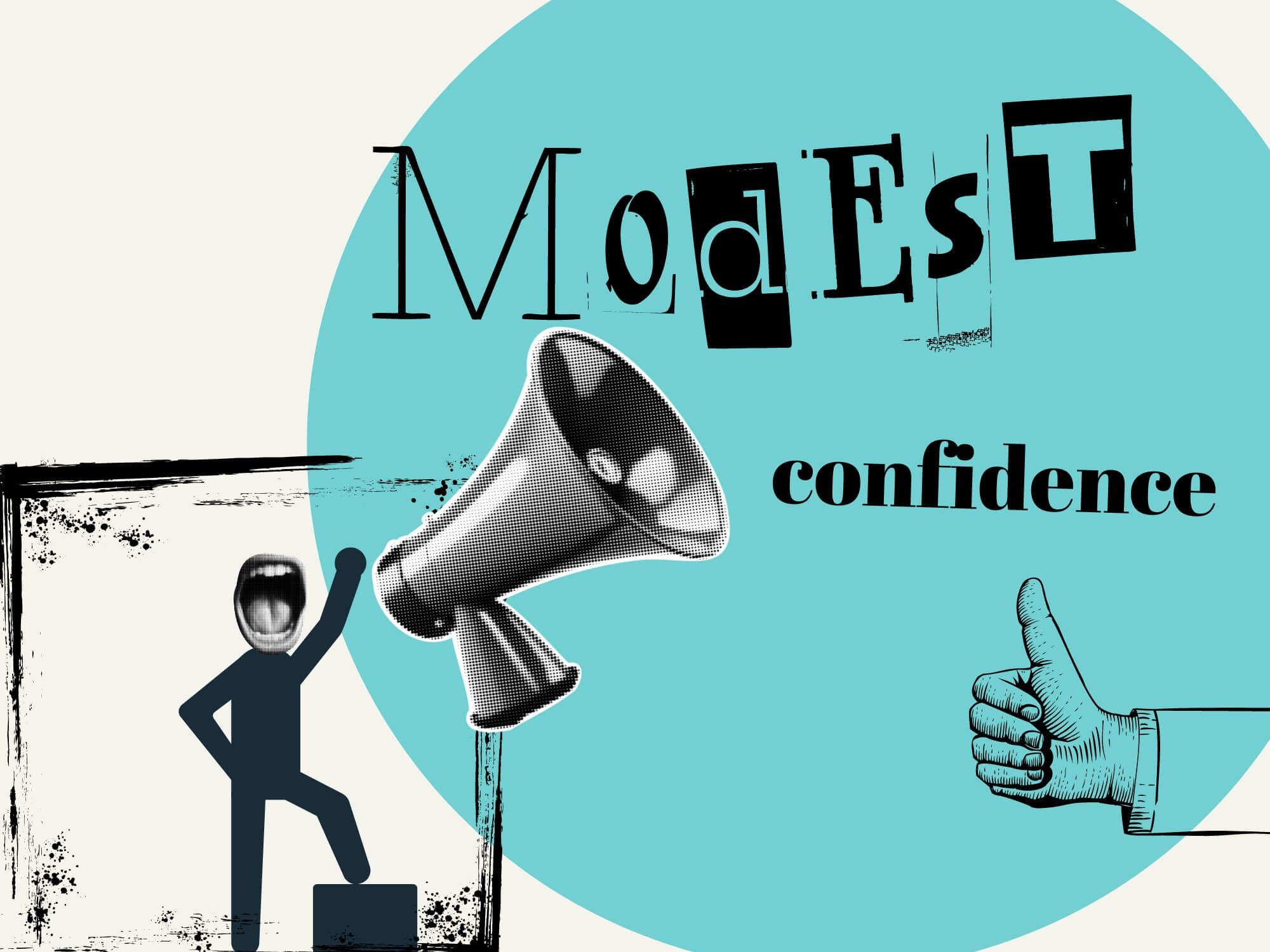How to Get Out of Your Comfort Zone (10 things I do)
After spending the past few years on planes and in different countries, I’ve realized something.
The greatest comforts in life come right after great periods of discomfort.
So (somewhat ironically) if you want to feel comfort even more deeply, then experience more discomfort. And this is just one benefit of doing more things that feel difficult or awkward.
So welcome to my guide on how to get out of your comfort zone — more often and with more confidence.
I’m a traveling musician who loves making creative projects and writing words online. The tips in this post are simply what work for me as I explore this world with a guitar and discover never-ending ways to make myself feel more awkward.
So let’s get to it!
Table of Contents Show
What Are Comfort Zones?
Let’s start with some clarity. So, what exactly is a comfort zone?
Comfort zones are limits, or barriers, that define what’s personally familiar, safe and secure.
We all have comfort zones and there’s nothing wrong with them — they have their role.
But learning to recognize them and work past a few is a great way to grow.
So before getting into how I like to do that, let’s explore what causes comfort zones and why it’s beneficial to push past them.
What Causes A Comfort Zone to Form?
Everyone has different comfort zones. The spectrum of comfort vs. discomfort is wide and subjective.
It’s pretty dang nuanced.
So what causes these imaginary barriers, anyways? I’m no psychologist, but here are some reasons I’ve felt:
We tend to stick with what we know (familiarity feels good)
A fear of the unknown
We tend to avoid pain
Routine and habits
It’s more efficient to do what’s familiar
Your environment and social influence (what are others around you doing?)
Your expertise and experiences (again, we do what we know)
Your beliefs and motivations (like, why should I even care?)
Why Should I? (some benefits)
In my view, the more you get out of your comfort zones (within reason), the better.
It forces you to think in new ways and experience new things. It’s a form of active, hands-on education that boosts your self awareness and knowledge base.
Getting out of your comfort zone makes you stronger, smarter and more resilient to change (which they say is constant).
And on a human level, it gives you a strong sense of personal pride.
Putting yourself out there and doing things that are difficult makes you feel energized and invigorated. You’ll be proud of yourself and have a sense of awesome achievement.
While there can be downsides to breaking past comfort zones (it’s less efficient, it causes stress, etc.), I’m in the camp that says it’s a positive thing, overall.
What do you think — are comfort zones good or bad (or both)? Let me know in the comments!
How to Get Out of Your Comfort Zone (10 tips)
Ready to destroy some comfort zones? Epic.
Here’s how I do it.
1. Define Your Comfort Zone
Where does your comfort zone start and end?
What types of situations make you feel out of your element? Why?
Answering these questions will make getting out of your comfort zone clearer and smoother.
After all, we first need to know our starting point in order to reach our destination.
2. Have A Why
Getting out of your comfort zones can be uncomfortable and challenging. So having some strong motivation is helpful.
For me, this means having a clear “why”. For example, a few of my motivations for pushing past my own comfort zones include:
My desire for new experiences and adventures
To find new inspiration for creative projects and content
To build new skills
To boost my self awareness
So how about you, what’s your reason for wanting to get out of your comfort zone?
3. Start Small (don’t do everything on this list all at once)
Getting out of your comfort zone doesn’t require some grandiose, larger-than-life gesture. It also doesn’t mean we need to put into action every strategy at the same time.
Because as you know, great things are built slowly over time. It’s less sexy, but a more effective method (plus it’s more sustainable).
For me, starting small means two things:
Pushing your comfort levels slowly (more on this in the last tip)
Focusing on one thing at a time
So for now, starting small means not trying to do too many uncomfortable things at once. Don’t try to do every tip in this list (or any other list) all at once.
There’s always going to be more than one way to get out of your comfort zone. But that doesn’t mean we need to tackle them all at the same time.
It can help to test a few out to see which resonate with you most, but don’t treat these ideas like a checklist.
Instead, use them for inspiration and find a solution that works best for you.
4. Go Traveling
Nothing gets you out of your comfort zone quite like travel does.
This is definitely one of my favorite ways to push myself into new experiences. It’s also a key part of my whole brand vision, so I may just be biased.
But there’s no denying the fact that travel gets you out of the familiar. It:
Forces you to try new things
Provides new experiences in different cultures
Broadens your perspectives and ways of thinking
Puts you in situations where you’re going to look awkward and make mistakes
So if you’ve got the traveler’s spirit and want an adventure, hop on a plane somewhere.
It’s uncomfortable, but it’s so worth it.
Recommended: How to Travel More
5. Be A Beginner
A great way to stretch your zone of comfort is to become a beginner.
This means learning new skills and trying new things. As a beginner, you’ll naturally be out of your element and in unknown territory.
This can feel awkward, but embracing a learner’s mindset and getting comfortable in these uneasy waters is a great way to get better at doing more uncomfortable things.
So what are some new skills you’d like to learn?
If you’re into creative things, check out my list of the top creative skills to know for some inspiration!
Recommended: How to Not Give Up Or Quit
6. Practice Vulnerability
Vulnerability can be uncomfortable. But practicing things like emotional confidence, art and expressing yourself can help push you past personal comfort zones.
I have firsthand experience with this.
I used to be petrified to sing in front of people or share my music with others. Publicly sharing heartfelt, highly personal lyrics made me feel exposed and vulnerable.
It requires confidence, which I was lacking. That, coupled with my creative imposter syndrome, forced me into a creative box.
The result? I stopped growing as an artist and my creative dreams were at a standstill.
This led to creative anxiety. I know I needed to stop these snowballs from gaining any more traction. So I did the only thing I could.
I started sharing videos online (under a penname, naturally).
This decision required vulnerability and forced me out of my artistic comfort zone.
But I became more confident because of it — confident in other areas of my life too, such as writing online, trying new things and even traveling.
So practice vulnerability. Because trust me, it’s a modern soft skill with some awesome benefits.
7. Practice Embarrassment + Fall In Love Awkwardness
If you can genuinely laugh at yourself, you’ll be primed to crush through your comfort zones.
Awkwardness is a part of life and almost unavoidable if you’re trying new things.
It comes with the territory.
So learning to embrace these moments and laugh it off is my best advice. For me, this means falling in love with awkwardness and all of my quirks.
Here are some ideas to get better at awkwardness and embarrassment:
Practice public speaking
Take an improv class
Film yourself talking to camera
Film yourself talking to camera in public
Just remember, people aren’t thinking about you like you think they are.
Plus, I’m convinced that anyone who judges you for doing awkward things probably just wants to secretly be more like you.
So stumble with a smile and let that sh*t go — this is a way better way to live in my opinion.
Recommended: How to Embrace Your Weirdness
8. Stay Present
Comfort zones are built on preconceived ideas or past experiences.
This means we’re not living in the present. The past can make us sad and the future can give us anxiety. Both of these emotions make it harder to get out of comfort zones.
So I say, practice staying present.
I like to meditate but there are tricks to stay in the moment, such as:
Being mindful and aware
Focus on and connect with your breath
Change your lifestyle to be more present (exercise and mindful eating help me)
Limit your social media and comparison tendencies
Turn off the news
Do more things that put you in a flow state
So just remember, don’t worry about what could happen and just stay present.
Because why suffer twice?
9. Zoom Out
A little perspective can change everything. That’s why I like to zoom out on things.
From stress management to increasing your clarity, zooming out gives you a wider lens and helps with understanding the bigger picture.
For me, this framework helps me recognize that discomfort is both temporary and often necessary to reach the next level in my journey.
It’s a higher perspective that takes my focus away from the minutia of details and nuance and elevates my conscious experience above all of that clutter.
Sometimes, this leads to more existential and esoteric ideas though.
Like the fact that I’m just a consciousness ghost driving a body avatar on a rock hurtling through space at thousands of miles per hour.
But whatever works for you, start there and then just let your brain drift farther and farther out.
Suddenly, comfort zones don’t feel so big.
10. Work With Your ‘Zone of Proximal Discomfort’
There’s an idea in skill building called the zone of proximal development.
Basically, it says we should learn and grow from just beyond our current base of knowledge or experience. Too far beyond, and we’ll fall apart. But too little, and we won’t grow.
I like this concept and I think it works well here.
Because getting out of your comfort zone shouldn’t mean putting yourself in peril or some type of danger — especially if you’re not ready for it. It’s about knowing your limits and working just past them (not way past them).
For example, if you’re afraid of swimming, you shouldn’t start deep diving to find caves in the middle of the ocean. That’s advanced and wouldn’t make sense.
So this goes back to the idea above about starting small.
Work within your zone of proximal discomfort. Find your sweet spot for discomfort and slowly work from here until you’re ready to push further.
Conclusion
Learning to get out of your comfort zones is an awesome skill and well worth practicing.
From new experiences to better self awareness, getting good at discomfort can make you stronger, smarter and more resilient.
Some of my favorite ways to push past comfort zones is traveling, learning new skills and embracing more awkward moments.
But whatever strategy you try, just remember to have fun, stay carefree and learn to laugh at yourself more.
Want More? Check Out These Sweet Reads!





